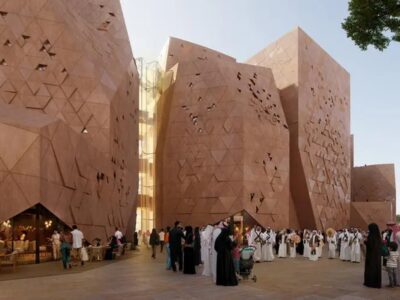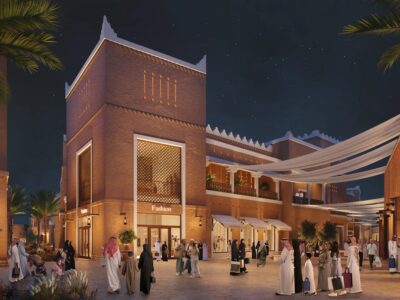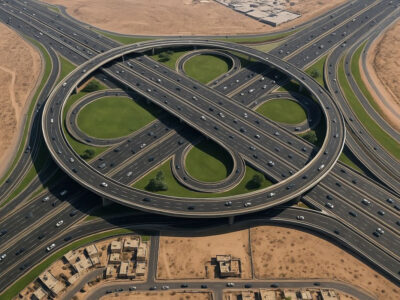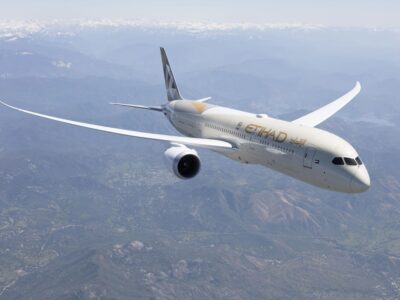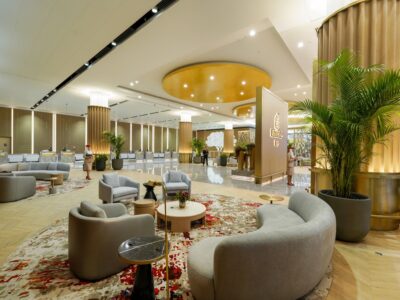How are shifting commodities prices affecting the aluminium sector and what does this mean for construction industry firms? Construction Week
investigates.
Aluminium is one of the most utilised materials in the construction industry, with virtually no major projects today completed without its use. But why is the material so popular and how are commodity price fluctuations and the downturn in the construction sector affecting the aluminium market? More importantly, what does this mean for end-users in the construction industry?
Aluminium advantages
Aluminium is a highly versatile commodity, with products manufactured from the material ranging from formwork to window frames and cladding, making its use applicable to all stages of the construction process.
“The chemical composition and physical characteristics of the material are major advantages,” stresses Youssef Khachan, commercial manager of curtain walling firm Alico. “First of all it does not rust, second it is lightweight, and it has no reaction to the external environment,” adds Khachan.
In addition to its non-corrosive properties, aluminium’s ease of handling is a major factor for its popularity in the construction industry. “It is very easy to cut, reshape and maintain; if it needs to be cut to a new length this is simple and requires unskilled labour. The only way to damage it is to bend the product,” explains Aluma Systems Middle East, business development manager (Abu Dhabi) Daniel Taylor.
“Another major benefit is it’s quicker and easier to install and requires less labour to use. With shoring equipment, for example, steel weighs twice as much and needs more time and labour to install [equivalent quantities] – 100m² of aluminium table-form can be moved by crane, but you couldn’t do that with steel due to the weight, you would need four pieces for 100m²,” Taylor stresses.
“The demand for aluminium products is increasing as aluminium is used in a lot of new applications,” explains Gulf Extrusions managing director Modar Al Mekdab. Its versatility in architectural design is another benefit. Mekdab explains, “[It can be specified in] different colours or with surface treatments such as anodising or powder coating.”
In addition to benefits while in use, aluminium products have another advantage over those manufactured from materials such as wood and steel – it maintains its scrap value regardless of age due to its non-corrosive properties and slow reaction to air.
Cost control
The price of aluminium, like many other raw materials has been fluctuating greatly over the past year due both to the global economic recession and the price of oil. “The price of aluminium is directly correlated to that of oil,” explains Taylor.
“It is primary aluminium that is mainly used in the construction industry,” adds Aluma Systems Middle East area manager Geoff Tydeman. “The price of this commodity over the last five years or so has been somewhat volatile with prices peaking in August 2008, prices being affected by supply and demand and energy costs,” he adds.
London Metal Exchange lists the price of primary aluminium in January 2009 as US $1413 per tonne (AED5190/tonne), falling slightly to $1330/tonne in February before rising to $1420/tonne in April. In July 2009 the price of primary aluminium was $1667/tonne, it then fell by 5% to $1561/ tonne between in mid-July reports global construction consultancy Davis Langdon.
“Prices receded dramatically over the period to February/March 2009; since that period prices are again on the increase, but at a slower rate,” confirms Tydeman. “The prices of finished aluminium extruded products have followed the same trend.”
“The aluminium price was down 60% at the end of 2008, compared to mid-2008 it has gone up again by 50% over the last few months,” reports Khachan. This sudden change in price is linked to the oil price rather than demand for the material.
“The commodities price rises seen this year are not justified on market fundamentals (real demand and production), but have mainly been driven by technical factors i.e. investment demand, stock building at low prices etc, which led to suggestions that as in 2008, speculation could exacerbate market moves,” explains a Davis Langdon spokesperson. “In mid-July, oil prices fell below the $60/barrel-mark, after Opec predicted a slow recovery in global oil demand in its 2009 World Oil Outlook. Opec said that oil prices could take five years to recover to pre-crisis levels.”
The effect of construction industry slowdown is also playing a part in the prices that aluminium contractors and manufacturers can command. “There was a big change in demand for aluminium in the GCC [in late 2008] due to the number of projects that were cancelled or put on hold,” states Khachan. “The rates we are seeing now in our aluminium and glazing contracts are 40% less than in 2008 and this is associated with demand as well as the metals price,” he reports.
Al Abbar Aluminium
Al Abbar Glass and Trading was established in 1959 and is totally owned by a Dubai family. The firm established Al Abbar Aluminium in 1986 after it successfully completed the aluminium and glazing subcontract for the Al Wasl Hospital, Dubai.
Al Abbar Aluminium offers a range of curtain wall products including unitised systems; conventional stick curtain wall; skylights; aluminium doors and windows; tension structure facades; and architectural cladding. It provides design, engineering, manufacturing and installation services to construction sector clients.
The firm operates manufacturing and fabrication units in a purpose-built factory in Jebel Ali, Dubai. It has provided products for more than 300 projects including the Burj Al Arab hotel.
www.alabbargroup.com/group_aluminum.html
Alico
Alico is one of the largest curtain walling companies in the Middle East. Founded in 1976 as a manufacturer of aluminium doors and windows, the firm now has an annual turnover of more than US $90 million.
It’s comprehensive design service enables the firm to manufacture tailor-made curtainwall solutions and custom-designed architectural metalwork products including skylights, cladding and mechanically-fixed structural glazing systems. Two coating lines at its factory offer finishing in either Duranar or Valspar flouropolymer wet coating; or dry-applied polyester powder coating.
Alico is active internationally and has completed projects in Kuwait, Saudi Arabia, Egypt, Qatar, Jordan, Bahrain, Oman, Japan, Malaysia, Singapore, Brunei, India, Pakistan, Sudan, Nepal, Russia and the UK.
www.alicoalum.net
Alubond
American Building Technologies located in Rockford, Illinois, USA is the manufacturer of range of composite panels and new building technology products. Alubond USA is the brand name for its aluminum and stainless steel composite panels; the products are also manufactured under license in the Middle East by Mulk Holdings and in Europe by Alubond Europe.The Middle East production facility has five production lines located in Dubai, Sharjah and Ajman, with a total annual capacity of more than five million m2 per year.
Alubond composite panels have been installed on several landmark projects in the Middle East including Index Tower, Motor City and Burj Dubai Lake hotel in Dubai; plus Cairo Airport and Sharm al Sheikh Airport in Egypt.
www.alubond.com
Aluma Systems Middle East
Aluma Systems Middle East rents and sells a patented portfolio of fast-track aluminium formwork systems that is designed to reduce floor cycles and labour needs. Worldwide, Aluma is a substantial organisation, with turnover in 2008 topping US$1.5 Billion. The firm’s most well known product is the Alumalite Truss Flying Table-Form, which is among the fastest slab shoring systems in the world.
Within the Middle East, its head office and main GCC production facility is in Al Quoz, Dubai; it also has a sub-office in Abu Dhabi. Aluma is currently carrying out projects in Al Ain, Sharjah, Ajman and Saudi Arabia.
www.aluma.com
“Everything in the market at the moment is over-supplied because during the 2008 boom, companies from around the world were attracted [to begin work in the region], so now because so many projects in Dubai are on hold there are more suppliers of products than are needed,” adds Taylor. “If it had not been for the booming five years prior to this, business would have been down, but not by as much. What we’re seeing is a micro-effect due to past oversupply in the market.”
Another micro-economic reason for the market oversupply and slower demand for aluminium products in the region is the larger than average amounts that firms have purchased over the past few years, while the construction industry boom was at its peak. Formwork is just one sector for which this is the case, as clients find they have sufficient quantities of the reusable product for forthcoming work.
Taylor explains: “In the last five years we have sold more than one million m² of formwork in this region, so many of the clients now own a lot of equipment. At the peak of construction work there were not enough suppliers in the market, which led to firms acquiring so much; they bought enough to meet their [projected] needs, but now that clients have fewer projects they need less. “The first thing that contractors say is they must use every piece of equipment [they own] before buying more,” adds Taylor.
Despite these issues, the larger aluminium contractors are reporting relatively strong order books over the short to medium-term. Façade sub-contractor Alumco Qatar announced in late August that it has won a major contract to provide aluminum cladding, curtain walls and glazing works for Building Type 5 within the Barwa Commercial Avenue mega project in Doha. The contract will include the installation of 31,000m² of aluminium cladding and 48,500m² of stick system curtain walls, windows and doors, with work due to begin on site in April 2010.
Other firms are also reporting successful operations. “Alico has ongoing work until at least Q3 of 2010, with most of our business now in Abu Dhabi” reports Khachan. “And [the rates] are now picking up with this increase in metals prices,” he adds. The prices of aluminium products are however expected to remain relatively low compared to 2008 prices.
Global movements
With the global economic recession generally expected to continue for the remainder of 2009, aluminium product manufacturers and contractors are taking several steps to maintain their income over the forthcoming period, when demand and materials prices are expected to remain volatile.
Gulf Extrusions is diversifying its products range to tap other markets. “We are developing profiles for various industrial applications including transport,” reports Mekdab.
For many of the major aluminium product suppliers, the solution to a drop in local demand is to expand their operations geographically. “We have got the full range of products already; there is not a niche market waiting to be discovered,” explains Taylor. Aluma is seeking to expand into Saudi, Qatar and Bahrain and has already deployed a team into Saudi Arabia and won contracts for two mega projects in the Kingdom including Saudi Oger’s Riyadh Women’s University. “We are also investigating various partnership options which will give us a good foothold in the Saudi market for many years to come,” adds Taylor. The firm plans to confirm these arrangements by the end of 2009.
Alico is now refocusing on markets in which it operated prior to the construction boom in Dubai.
“Before the boom in Dubai [Alico was] active in all the GCC countries and we did projects in more than 25 countries worldwide; when the boom started in 2003/2004 we concentrated our works in the UAE because of the high demand for facade work, but we are now investing in markets in the GCC, Africa, Asia and Europe,” explains Khachan.
The firm is currently discussing potential partnership arrangements in Saudi Arabia, Qatar, Bahrain and Libya. “We are trying to focus on export now our focus will be more on the GCC countries because following the boom [in this region] over the past five years it makes sense to pursue in this area,” adds Khachan.
Local aluminium firms cite other factors that are leading them to look further afield for work. “Competition from the Far East is a major concern for all local major aluminium contractors,” he stresses. “The energy needed to produce the material is less, plus the cost of labour and resources are cheaper [in the Far East],” he explains. The influx of firms from this region is putting further pressure on local producers that have higher overheads.
Future product availability
Positive signs for both local aluminium manufacturers and contractors, plus end-users of aluminium products is the continuing expansion of the aluminium smelter industry in the Middle East. Several large-scale plants are currently under construction and once complete the local availability of aluminium will also rise, with predicted falls in product prices.
Abu Dhabi-based Emal International has reportedly completed 50% of its new $5.6 billion aluminium smelter in Abu Dhabi, with production due to begin in April 2010. The Qatar-based Qatalum smelter is also scheduled for completion next year.
Alumco
Alumco is a specialised aluminium facade contractor whose prime business is the design, engineering, manufacture and installation of facade systems. The firm’s scope of work covers skylights, cladding, doors and windows, double-glazing, tempering, powder coating and steel fabrication.
It is an authorised fabricator for French firm Installux Aluminium, a leading international system that comprises of aluminium profiles, accessories, gaskets and fabrication tools.
www.alumcouae.com
Arabian Aluminium
Arabian Aluminium is part of Al Ghurair Construction Industries, member of Abdullah Al Ghurair Group. Established in 1967, it was among the first in UAE to design, manufacture and install architectural aluminium and glass elements. The firm now offers a wide range of aluminium, steel and stainless steel fabrication and installation services to meet client needs. It can provide a full range of glazing systems incorporating full thermal breaks, drainage and the rain screen principle of pressure equalisation; plus custom-designed architectural metalworks.
www.agci.ae
Gulf Extrusions
Gulf Extrusions, which is part of the Al Ghurair Group of Companies, is one of the largest extrusion plants in the Gulf. Located in Jebel Ali, Dubai, it produces more than 7000 profiles ranging from architectural sections to air conditioning grilles and customised products.
The plant is designed to produce aluminium sections in mill, silver and colour anodised (spectrum colors), gold dyed and powder-coated finishes. Nearly 70% of the output is used in the local market to support the building and construction projects; the remainder is exported to South East Asia, other GCC countries, Europe and Canada.
www.gulfex.com
Reem Emirates Aluminium
Reem Emirates Aluminum (REA) was formed in May 2006 to service the rising demand for architectural finishes and metalworks in Abu Dhabi. The firm is part of the Abu Dhabi-based Royal Group and is a leading designer and manufacturer of energy efficient, high-tech, custom-designed aluminum curtain walls.
REA has a 20,000m2 aluminium curtain wall factory that specialises in custom-built architectural cladding elements, with particular emphasis on designing and manufacturing unitised curtain wall panels. It can produce more than 65,000m² of curtain wall panels each month.
The firm is providing products for a number of high-profile projects including Etihad Towers Development and Masdar Institute of Science & Technology’s Masdar campus.
www.reemalum.com
